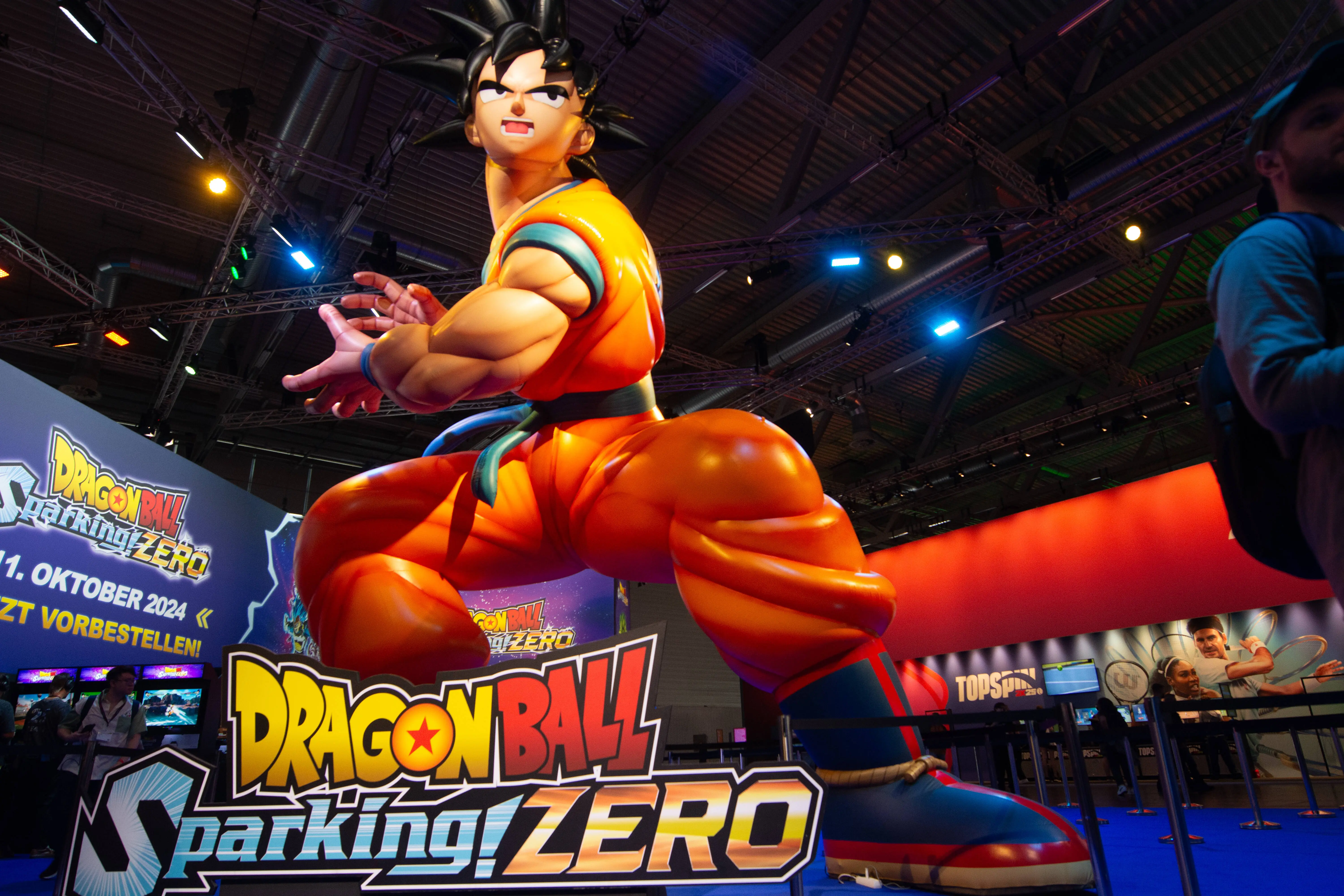Giant publisher Shueisha, home to One Piece, Dragon Ball and more, publicly threatens OpenAI over potential copyright infringement
-
 The Dragon Ball game installation is seen at the Bandai Namco Entertainment booth during the opening day of Gamescom in Cologne, Germany, on August 21, 2024. (Photo by Ying Tang/NurPhoto via Getty Images)
The Dragon Ball game installation is seen at the Bandai Namco Entertainment booth during the opening day of Gamescom in Cologne, Germany, on August 21, 2024. (Photo by Ying Tang/NurPhoto via Getty Images)OpenAI’s newly launched tool, Sora 2, is now facing a major threat from the anime industry, claiming that the artificial intelligence is copying their work without their consent. OpenAI is already battling a lawsuit from George R.R. Martin and several other authors over alleged use of their copyrighted works, but now, another high-profile case is making headlines.
According to reports by Gaming Amigos, Shueisha, the big Japanese company behind One Piece and Dragon Ball, has warned that it will take legal action if OpenAI’s new AI model, Sora 2, uses its copyrighted material without permission. The creators claim that the video generated by OpenAI’s tool, Sora 2, created anime videos in which the characters and the scenes are very similar to their famous “anime and manga scenes,’’ for which they dedicated years of hard work.
OpenAI’s Sora 2 is facing a major warning by the largest publishing company in Japan, Shueisha and several other anime and manga companies
In their statement, the companies said this current system uses their work illegally and puts them at risk of copyright infringement. The statement in its press release reads (via Gaming Amigos),
"This fall, with the release of a new generative AI service (OpenAI's Sora2), a large volume of videos similar to well-known content has appeared online. These videos, which infringe on the copyrights of anime and characters, are generated based on AI learning.’’
This warning is becoming a bigger movement in Japan against AI copying creative works. The Content Overseas Distribution has already joined in with Shueisha, where they stand united against OpenAI’s Sora 2, which includes companies like Bandai Namco, Studio Ghibli, Toei Animation, Kadokawa, Square Enix and Aniplex. Along with them, 17 other anime and manga companies have also spoken out against the tech company, warning that they may take legal action, where an official joint statement has already been issued.
The recent trend in which AI was able to generate Ghibli images also faced a huge backlash from the original creators. Now it's high time for them to stop allowing AI companies to use their original works for training their AI bots and models, without their prior permission or consent.
The companies are angry about Sora 2’s “opt-out” rule. This means the AI can use any online content for training, unless the owner specifically prohibits it. The publishers say this is against Japanese copyright law, which requires an “opt-in” system, meaning permission must be given first before someone’s work is used.
In the press release, the official statement reads,
"Unless providers of generative AI services, under their responsibility, urgently introduce effective infringement countermeasures beyond "opt-out methods" and remedies for rights holders, we have reached a stage where the spiral of infringement using generative AI services, which continues to shake the foundation of the content industry, will not stop. National-level responses toward content protection, including legal developments, are also essential."
According to reports by Outlook Espawn, the Japanese Government is also strongly supporting the giant publisher Shueisha and all the anime houses that joined in against OpenAI.
- OpenAI pauses AI-generated content on Dr. Martin Luther King Jr. after daughter Bernice King slams Sora deepfake
- What did Sam Altman say about mental health? OpenAI CEO's response to ChatGPT's 'erotica' backlash stirs discussion online
- “Feel so sorry for celebrities who are about to be taken advantage of”: Netizens react as OpenAI’s ChatGPT to allow ‘erotica’ for verified adult users
- Is Ricky Berwick still alive? Viral RIP news report death claim debunked